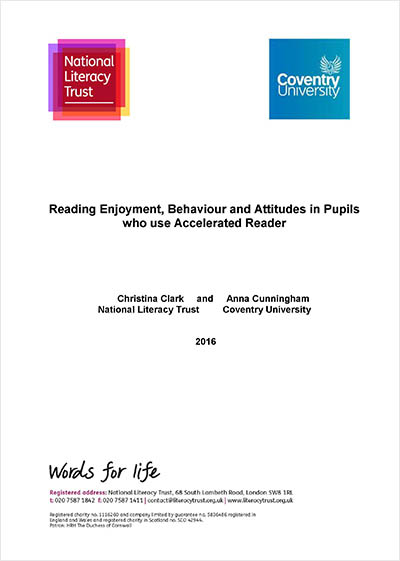May 18, 2016
Debates surrounding assessment have dominated the news recently. Parents and teachers have lined up to criticise the rigour of this year’s tests and the BBC reported that nearly 90% of 10- and 11-year old pupils in England feel pressured to do well academically.
These stories raise questions about how to measure progression, particularly in primary schools, and how we can ensure children’s educational progress is measured efficiently, while still allowing them an enjoyable and relaxed childhood.
When properly implemented and managed, assessment can play a useful, positive, and even enjoyable role in the primary education curriculum, particularly for boys – who tend to learn better when activities are given a solid structure.
At Renaissance Learning, our Accelerated Reader (AR) programme is designed with formative assessment in mind. Its concept is simple: children read books they choose themselves and enjoy and once they have read them they are quizzed on the content. These quizzes provide teachers with a clear and accurate indication of their students’ progress and goals for the future.

A recent piece of research published by the National Literacy Trust (NLT) and Coventry University into the effectiveness of AR in improving children’s enjoyment of reading found that children who use the AR programme enjoy reading “quite a lot” more than those who do not (58% enjoy it compared with 51% who do not). This is significant as it shows that assessment, when implemented formatively, can help increase children’s enjoyment of learning and literature.
Perhaps even more significantly, boys using AR develop a greater love of reading than those not using it. Academics and policy makers have been working for some time to find a way to engage boys more effectively in reading, particularly white boys from lower socioeconomic backgrounds. According to the data, 32% of boys not using AR dislike reading. However the NLT-Coventry University research found that when AR is used, boys’ enjoyment of reading rockets up and almost 91% report enjoying reading – a significant breakthrough for a very hard to engage group.
Some form of testing is needed to establish a reference point from which to measure students’ progress and ensure that they are on track. The NLT’s findings show that there is a way of assessing children in a stress free enjoyable way that, in addition to measuring progress, instils in children the love of learning that is so crucial to future success.
The challenge now is to ensure that as many teachers, school leaders and policy makers as possible are aware of the proven advantages of formative assessment and treat it as their default choice for primary assessment.
Click here to download the National Literacy Trust report on ‘Reading Enjoyment, Bahviour and Attitudes in Pupils who use Accelerated Reader.
